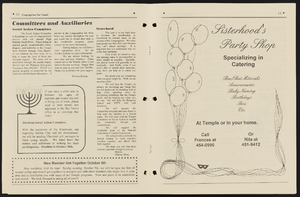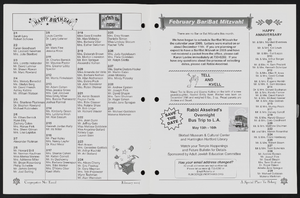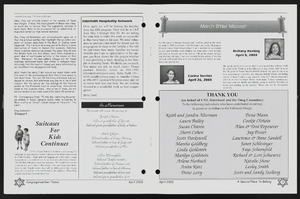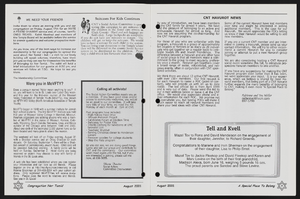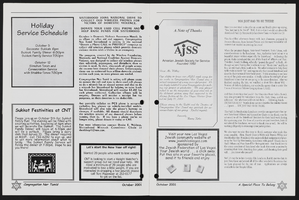Search the Special Collections and Archives Portal
Search Results

"Arizona: The Martin Luther King Holiday": paper by Roosevelt Fitzgerald
Date
Archival Collection
Description
From the Roosevelt Fitzgerald Professional Papers (MS-01082) -- Unpublished manuscripts file. Presented at 5th Annual West Coast Meeting of National Social Science Association, Scottsdale, Arizona.
Text
Kane Springs Ranch Records
Identifier
Abstract
The Kane Springs Ranch Records (1930-2005) contain materials related to the Kane Springs Ranch in Meadow Valley Wash outside of Moapa, Nevada. The collection primarily focuses on the property itself, but also contains a genealogy of the Huntsman family, the ranch's first owners. Records include deeds and materials from the sale of the Kane Springs Ranch to the Bureau of Land Management in 2005. The bulk of the collection documents how the Bradley Stuart family used its resources from 1952 to 2003. These materials are related to water usage on the property and a rock and sand mining operation.
Archival Collection
Celesta Lowe oral history interview
Identifier
Abstract
Oral history interview with Celesta Lowe conducted by Patrick Carlton on February 6, 2002 for the Las Vegas Rotary Club Oral History Project. Lowe begins by discussing her early life in Baker, California and her father’s role as a station agent for the Tonopah Tidewater Railroad during the 1920s and 1930s. Lowe then describes her family moving to Las Vegas, Nevada in the 1940s. Lowe chronicles the process state legislatures took to open Nevada Southern University in 1957 and her role as an administrative assistant in the main office of the school. Lowe recounts her career at Nevada Southern University, the expansion of the campus, and renaming it University of Nevada, Las Vegas. Lastly, Lowe talks about her switch from an administrative assistant to a librarian at UNLV.
Archival Collection
Larry Ruvo oral history interview
Identifier
Abstract
Oral history interview with Larry Ruvo conducted by David G. Schwartz on January 27, 2009 for the Remembering Jay Sarno Oral History Project. Ruvo begins by discussing his position as a front desk clerk at Caesar’s Palace in Las Vegas, Nevada in the 1970s. Ruvo then describes how Jay Sarno changed the casino industry by designing Caesar’s Palace with a single theme. Ruvo then chronicles how gaming gradually was legalized in more areas throughout the world and how Sarno capitalized on making Caesar’s Palace an iconic casino which made people want to travel to Las Vegas. Lastly, Ruvo discusses Sarno’s focus on offering both gaming and entertainment options for guests at Caesar's Palace.
Archival Collection

